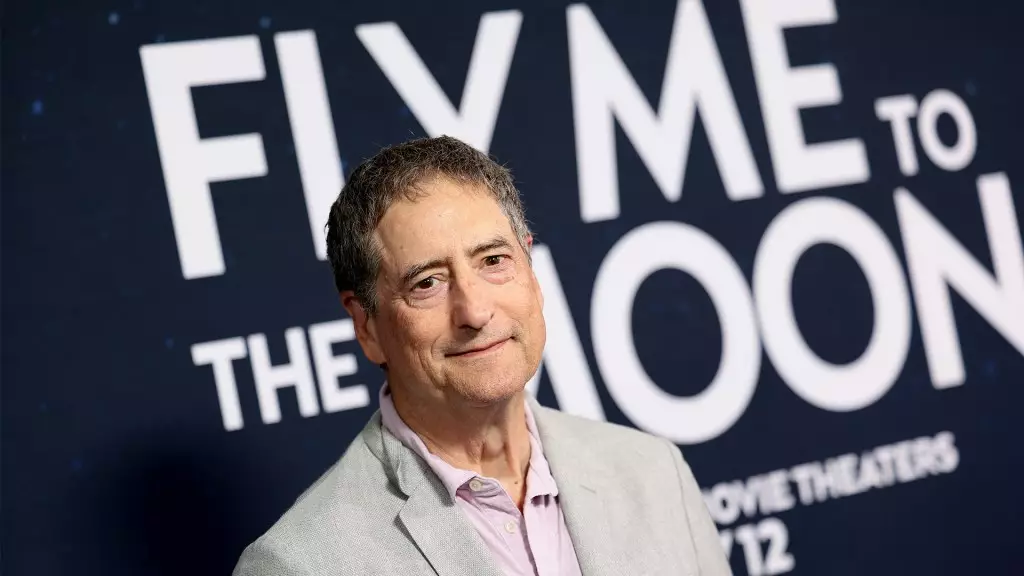The rapid evolution of the entertainment industry has led to significant shifts in how studios navigate partnerships, acquisitions, and the emergence of new trends. Recently, discussions around a monumental deal in Hollywood have caught the attention of industry insiders and audiences alike. The impending agreement between Skydance and Paramount Global valued at $8 billion demonstrates the evolving dynamics within the sector. Tom Rothman, Sony Pictures’ Chairman and CEO, offers a compelling perspective on the current landscape, underscoring the complexities inherent in such large-scale transactions.
At the forefront of the discussion is the proposed merger between Skydance and Paramount Global. Rothman’s insights reveal that while this scenario appears definitive, the nuances of corporate acquisitions often involve numerous variables that could influence the outcome. A significant factor is the limited timeframe—a 45-day go-shop period, which allows for alternative offers to surface. Should another entity emerge with a better proposal, Skydance could face a substantial penalty, suggesting that corporate maneuvering is an intricate chess game, fueled by both ambition and potential setbacks.
However, the deal is not without its challenges. As Rothman notes, the regulatory environment poses hurdles for potential competitors like Sony, particularly regarding foreign ownership when American broadcasting networks are involved. The perception surrounding such restrictions highlights a crucial point: industry dynamics are not just dictated by incentives and strategies, but are also shaped by the laws and regulations that govern corporate operations. Thus, while Skydance may be on the brink of a transformative partnership, the road to approval is complex and fraught with potential pitfalls.
Amidst these corporate machinations, a different current flows through the industry—the revival of the romantic comedy (rom-com) genre. In Rothman’s view, the decline of this genre is overstated. His forthcoming project, *Fly Me to the Moon*, marks a strategic return to form for Sony Pictures, a studio that has deftly navigated the challenges of post-pandemic filmmaking. With a star-studded cast and collaboration with Apple, the film symbolizes a broader trend of re-engaging audiences with character-driven narratives that explore interpersonal relationships.
Despite the dominance of streaming platforms, which have commodified much of cinematic output, Rothman maintains optimism regarding audience reception to romantic comedies. His assertion—“if you build it, they will come”—encapsulates a fundamental premise of effective storytelling: audiences crave authentic experiences that resonate emotionally. By revitalizing a timeless genre, studios like Sony possess the potential not just to cultivate box office success but also to enrich the cultural landscape of cinema.
As the landscape continues to shift, the resilience of studios like Sony and their ability to adapt becomes increasingly vital. Unlike Paramount, which grapples with debt tied to the launch of streaming services, Sony’s position as a financially agile player provides it with a competitive edge. This nimbleness allows for the exploration of diverse projects and collaborative ventures that can expand its footprint in the ever-changing marketplace.
Rothman’s recognition of David Ellison’s capabilities, should the Skydance-Paramount deal proceed, reflects an adaptive mindset that industry leaders must adopt. In the merger-driven landscape, the need for visionary leadership has never been more critical, as new executives bring fresh perspectives to legacy studios. Such leadership not only enhances operational effectiveness but also contributes to a vibrant workplace culture that fosters creativity.
Ultimately, the evolving narrative of Hollywood is a multifaceted one that intertwines corporate strategy, audience engagement, and genre revival. As acquisitions ripple through the industry and the pendulum swings back toward beloved genres like romantic comedies, the path ahead is laden with both challenge and opportunity. Leaders like Rothman serve as guiding beacons, reminding the industry of its roots while pushing towards an innovative future. In this ever-shifting environment, what remains constant is the need for storytelling that connects—after all, the heart of cinema beats strongest when it truly reflects the human experience.


Leave a Reply